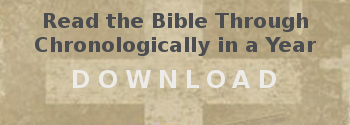The ongoing hoo-ha about global warming; the fact that it’s “Earth Day” on the 29th of March and we are all expected to turn off our lights for an hour, together with the fungal infection under my fingernails, has created the opportunity to take another look at what it means to live in a world which is in a state of decay. It also gives me the opportunity to draw some conclusions about the current environmental policy.
We, in the west, having made ourselves rich and comfortable by sacking our own environment, are now telling third world countries, “No, don’t destroy the environment; just continue on in your quaint traditional peasant-like poverty. And we, for our part, will switch of our lights for an hour in late March” [applause].
Romania, I have been told, has enough gold in its hills to make itself a modern day player in the world economy. Hundreds of thousands could be released from poverty and enjoy a better quality of life. But no, our environmental imposition is telling them they can’t dig up the hill. And why are we saying this?
Is it because, if global environmental breakdown is just around the corner, we in the west would almost certainly be inconvenienced by the restrictions? Or is it because, if these third world countries were to imitate the industry that made us rich, we might suffer some discomfort over the economic competition? You be the judge.
As Christians, we love the world that God has made. And since we believe that God so loved the world that He gave His only Son, we are not in despair about the present decay. As a result, we can respond to the current environmental panic in two ways.
First, while the world inflates itself with Herculean attempts to “turn the beat around” as though they had “the whole world in their hands”, the Christian rests in the sure and certain knowledge that Jesus Christ has, and is, redeeming the world and lifting the curse under which it presently groans. From the simplest flowers to the ficus benjaminus, creation awaits the day of restoration with eager expectation. (Rom 8:19-23) The death and resurrection of Jesus Christ has not only secured the redemption of our bodies, but of the entire creation. All will be made new.
Until then, we take comfort in the promise that, “…as long as the earth remains seed time and harvest, cold and heat, summer and winter, day and night, shall not cease.” (Gen 8:22)
Secondly, while the West wcontinues in the exploitation of the poor through greed. And while it continues in the rather bizarre hypocrisy of destroying more of the world’s resources than anyone else in order to improve its opulent quality of life; the Christian, being a traveller who is seeking a better city, is by nature an under-consumer. We have no need of lobster for breakfast or caviar for tea. We see little value in rings on our fingers or bells on our toes. Our clothes aren’t billboards, cars are optional, we swim at the beach, our play stations are playgrounds and our houses are homes. We live quietly and are in need of little. The little we need, our King provides.
But while we trust, and while we travel, we are not idle. Jesus Christ will restore all things and so we have peace of mind. But how will He do it? Through the proclamation of the Gospel. And so, we are not idle and we are not indifferent about the state of the planet. We are actively engaged in the restoration of creation through the message we preach. We are working from the inside out. Co2 is not the enemy. The enemy lies much nearer the heart. We are both the subjects of God’s redemption and the proclaimers of it.
The worlds attempt at planetary restoration is simply an attempt to clean up the mess it made so it can give itself a hearty pat on the back. We believe in the salvation and restoration of creation – through the gospel.
We are actively engaged in the rejuvenation of the planet through the preaching of the gospel which says, “Put down your shovel and your solar panels and take up your cross.”



Leave a Reply